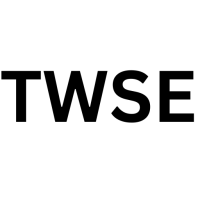Summary
Cut through the green tape
We don't push agendas. At Net Zero Compare, we cut through the hype and fear to deliver the straightforward facts you need for making informed decisions on green products and services. Whether motivated by compliance, customer demands, or a real passion for the environment, you’re welcome here. We provide reliable information—why you seek it is not our concern.
Details
- Taiwan
Deep dive
Background
The Taiwan Stock Exchange Corporation Rules Governing the Preparation and Filing of Sustainability Reports (TWSE Climate Disclosure Rules), introduced in 2022 and amended in 2024, represent a significant step in Taiwan’s efforts to align corporate sustainability reporting with global standards. These rules were established under Paragraph 3, Article 47 of the TWSE Operating Rules and are part of broader climate governance reforms, including the Climate Change Response Act (CCRA, 2023), which replaced the Greenhouse Gas Reduction and Management Act (GGRMA) and codified Taiwan’s 2050 net-zero emissions target. The Financial Supervisory Commission (FSC) and the Taiwan Stock Exchange (TWSE) are the primary implementing agencies, integrating these rules with policies like the Corporate Governance 3.0 – Sustainable Development Roadmap and the Green Finance Action Plan 3.0. The TWSE rules complement mandatory greenhouse gas (GHG) reporting under the CCRA, ensuring listed companies disclose climate risks and emissions in line with frameworks such as the GRI, TCFD, and SASB.
Reporting Requirements
Affected companies must disclose Scope 1 (direct) and Scope 2 (indirect) GHG emissions, alongside climate-related risks, opportunities, and mitigation strategies in annual sustainability reports. Reports must follow Global Reporting Initiative (GRI) Standards, include a GRI Content Index, and feature third-party verification for high-emission sectors. Climate disclosures must also align with TCFD recommendations, covering governance, strategy, risk management, and metrics. Large firms (e.g., steel, cement, and companies with ≥NT$10B capital) began reporting in 2023, while smaller firms face phased deadlines extending to 2029. Reports must be filed via the TWSE’s Market Observation Post System (MOPS) by June 30 (or September 30 for assured reports). To enhance the quality and comparability of disclosures, the TWSE has provided a range of resources including templates and industry-specific indicators to assist companies in report preparation.
Covered Entities
The scope of these reporting requirements encompasses a broad range of entities. Specifically, companies operating in the food, chemical, and financial sectors, as well as those whose revenue from food and beverage operations constitutes at least 50% of their total income, are obligated to comply. Additionally, all listed companies with a paid-in capital of NT$2 billion or more are required to submit sustainability reports, with the mandate extending to those with paid-in capital below NT$2 billion starting in 2025. According to the TWSE, by the end of 2024, 722 listed companies had published their 2023 sustainability reports, representing over 70% of all listed firms.
Penalties for Noncompliance
To enforce compliance, the TWSE has instituted a series of penalties for non-adherence to the reporting requirements. Companies failing to submit their sustainability reports by the stipulated deadlines may face administrative fines ranging from NT$10,000 to NT$30,000. Beyond monetary penalties, non-compliant firms risk reputational damage, potential exclusion from investment portfolios that prioritize ESG criteria, and increased scrutiny from regulators and stakeholders. The TWSE also reserves the right to conduct reviews of submitted reports, focusing on the accuracy and completeness of disclosed information, and may mandate corrective actions or impose additional sanctions in cases of significant deficiencies or misrepresentations.


